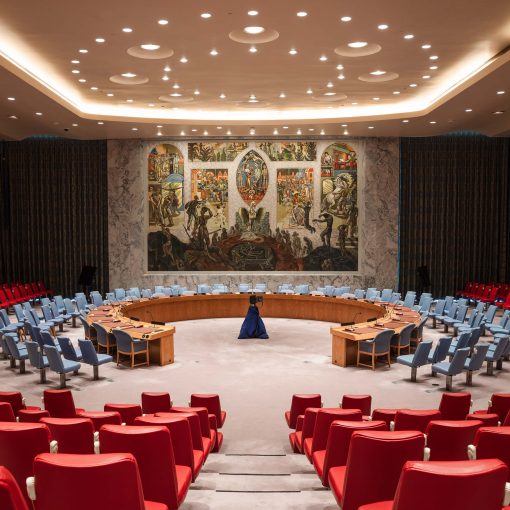By Dr. Dan Middlemiss, 16 December 2021
Over the past decade or so, the international geostrategic environment has undergone a major seismic shift for the first time since the end of the Cold War. Other countries have begun to take notice and have slowly begun to take their defence more seriously, both individually and collectively.1 But not Canada.
Canada has been outsourcing its defence for 70-plus years. Since the late 1950s, Canadians and their governments have expected that the United States would protect them. As a result, Canadians have shown a pragmatic scepticism that spending on defence would make a significant difference to their own physical security.
For their part, our governments have perceived little practical advantage in spending on defence, except perhaps in regional terms where the issue of jobs occasionally matters. Put simply, successive federal governments have enjoyed electoral immunity concerning major defence equipment decisions. Consequently, our elected officials' default position is to promise much, but then to stall on following through on their promises.
Our current government is no exception to this rule: it is long on talk and short on action when it comes to defence. This has led some to liken Canada’s approach to defence as “Speak loudly and carry a bent twig” (Denis Stairs), or “Walmart Style” defence policy (Christian Leuprecht and Joel Sokolsky). Tokenism is the order of the day, and Canadians seem to like it that way, and see little role other than as a purely supportive one for their military.2
We are seeing this perennial cycle being repeated, as it so often has been in the past, on Canada's two major, current defence equipment programs: the CF-188 fighter replacement, and the CSC. Where else but in Canada could one see a lengthy competition to select a new surface combatant, only to be followed by several years of negotiations to determine whether or not Ottawa will be able to afford the winning design? Delays are followed by more delays as decisions are continually evaded and put off. Costs, of course, continue to rise precipitously, making the programs even more unaffordable.
Canada’s ‘voice’ and its international influence have been MIA.3 As the current AUKUS initiative demonstrates, Canada is being bypassed as a serious participant in the major defence and security policy decisions dealing with the mounting threats of a resurgent Russia and an increasingly confrontational People’s Republic of China. Moreover, earlier this year, Professor Denis Stairs and I broached the idea that Canada might no longer be considered as important as it once was to US defence and foreign policy.4 In retrospect, it would appear that we had understated just how far apart our two countries have grown.
As a former Minister of National Defence once observed, “The primary obligation of the Department of National Defence and the Canadian Forces is to protect the country and its citizens from challenges to their security.... In the final analysis, a nation not worth defending is a nation not worth preserving.”5
So, have we reached the point at long last when Canadians and their governments have agreed that Canada, as a sovereign state, is simply not worth the trouble defending?
Notes
1. United Kingdom, Defence Committee, “We’re going to need a bigger Navy,” 14 December 2021. Accessed at: https://committees.parliament.uk/committee/24/defence-committee/news/159793/were-going-to-need-a-bigger-navy/
2. “Views of the Canadian Armed Forces – 2020 Tracking Study Final Report,” POR-083-19, 22 September 2020, Earnscliffe Strategy Group. Released 24 November 2020.
3. Mark Agnew and Nicolas Todd, “Rethinking Canada's Security Policy: How Canada Can Graduate from the Kids’ Table,” CGAI, December 2021. Accessed at: https://www.cgai.ca/rethinking_canadas_security_strategy_how_canada_can_graduate_from_the_kids_table
4. Dan Middlemiss and Denis Stairs, “Canada-US Defence Relations and the CSC: A Ship Too Far?” Canadian Naval Review, 17:1 (2021), 22-27.
5. The Honourable David Collenette, Minister of National Defence, “Introduction,” 1994 Defence White Paper.






4 thoughts on “Make-Believe Defence for a Make- Believe Country?”
The Dr. Middlemiss’ article “Make Believe Defence for a Make Believe Country” although brutal, is sad but so true. Because of continuous political “sitting on the fence” government policies on defence renewal, Canada relinquished its sovereignty many years ago. The days of the USA coming to our aid and saying…. “oh, the Americans will defend us” are over for good. The rest of the allied world now look upon Canada with “pragmatic scepticism” as well, and a drag on the collective defence of NATO. We have become the laughing stock of most, and not taken seriously whenever we try to “Speak loudly but carry nothing to back up what we profess to say”. The United States has finally come to their senses and ruled out Canada as a significant ally now, or in the future, as a trusted friend and neighbour that they can depend on when the “going gets rough” as the AUKUS agreement has shown recently. The Canadian government can’t seem to get out of its own way and let the defence of our country grow and prosper naturally. Another former Minister of National Defence also once observed that “a Nation that “contracts out” the defence of its own territory is not sovereign, but a protectorate”. One thing I will strongly disagree with Dr. Middlemiss on though is that most Canadians want a CAF that will defend our interests domestically and world-wide no matter what government is in power. Those who paid the “final price” on behalf of all Canadians during several world conflicts (including the 158 brave Canadians during the war in Afghanistan) thought Canada “was well worth the trouble defending”! It is past time the government in Ottawa finally come to their senses, start real defence renewal soon and stop this delaying of equipment replacements (maybe it will go away) for our Canadian Armed Forces. The USA and NATO would then see Canada in a much different light and perhaps we would get back some of the respect that others have paid the ultimate price for.
Well, it does appear that Middlemiss & Stairs are insisting that they must continue on from their CNR 17:1 (2021) article, their seemingly dispagement of the RCN’s proposed Canadian Surface Combatent (CSC) vessels and onboard equipment. It seems to me to be elementary that one way of overcoming their concern for a “Make-Believe Defence for a Make-believe Country”, would be to foster towards the public and electorate for those elements that they insist we cannot afford, or are missing in our collective psyche. These two distingwished gentlemen have contributed much to the political side of defence concerns. Here, they seem to be pandering to something that is rather disturbing to me. I am one of those that went to sea during the Cold War in very capable “Steamers” for the day, but barely weapons adequate vessels, particularily during the Cuban Missile Crisis. The emphasis needs to be shifted towards obtaining the most capable and technical state-of -the – art equipment we can procure. Nay-saying for the sake of promoting discussion is hardly productive.
Hello,
I am a civilian, lurking around here and sticking my nose into things that I am not qualified to assess. However, as a civilian, the one thing that strikes me in the posted material is “build a more reliable sovereign capability”. The discussion around spending and our forces’ need for “state-of-the-art” and “best that money can buy” is of limited value when faced with the reality that our ability to be sovereign is limited. As a civilian citizen of this country, I certainly value its defence, but what are we defending? We do not fully control our foreign policy, we do not control our economy, we do not fully control our natural resources, we do not fully control our media or even our politics. A large portion of our population does not even recognize such a thing as “Canadian”, let along define it. We do not manufacture most of our basic needs, and we certainly do not produce the major inputs to our defence, namely advanced weapons systems. Aside from some enabling systems, we don’t seem to do any heavy R&D and design. We don’t design our own vessels, or armoured vehicles, let alone artillery or missiles. We do not design and manufacture advanced machinery. We design and manufacture some aircraft, holding on to some of the business aviation sector, but we do limited design and manufacturing of engines. Focusing on spending for procurement just looks like the kids trying to buy the cool stuff so they can also sit at the adults’ table. How can we sit with the adults when we can’t demonstrate the ability to produce our own stuff and take care of our core needs?
Pardon the criticism (broadside?), but a lot of things need to happen on the civilian side to allow the natural strengthening of the defence side. Increase focus on STEM education, and refocusing a large portion of the economy from the financial sectors to manufacturing would be good places to start. We need to develop a robust sovereign industrial base first, and unite the country around something truly home-grown. We need to establish sovereignty over all of our key sectors, from natural resources to manufacturing. Until we can look at something and proudly exclaim “there goes something we Canadians made!”, what is there to defend? We can’t even afford to buy our own homes, and the only things Canadian in them are the concrete, lumber and drywall.
The productive potential of this country is immense. We are one of the very few countries with energy surplus; we can produce steel and aluminium and process key minerals; we have an established core nuclear industry. We need our leaders to nurture and capitalize on this potential first, then worry about making our voice heard on the international stage.
So as a civilian, I don’t think Canada needs to buy the RCN 15 (or 12 or 8 or 4 or even one) $4 billion vessels (frigate/destroyer/combatant/super-boat). Canada needs to learn to consistently build a good $500 million vessel first, with Canadian weapons and core systems. We demonstrate this level of maturity in our house first, then the world will want to listen to what we say. Sovereignty and security will be the natural outcomes.
Hello Curious Civilian! As a “retired” RCN “professional” (41 1/2 yrs +1 day continuous service), I for one really appreciate your points of view. Though I may not agree with all that you say, I think all forum members can feel your passion for the RCN & CAF in general. Building a “reliable sovereign RCN capability” is not easy to do but I truly believe that the 15 future CSC Frigates will certainly go a long way to realize and defend our own Canadian sovereignty. These future ships although not designed in Canada, will be the backbone of the RCN fleet. These ships will have Canadian technology built in to defend our own sovereignty and will be years ahead of any modern frigate being built or developed today throughout the world. These ships will not just be good but superior to anything designed for the next 40-50 years. Something for all Canadians to be proud of. During the RCN’s recent history (1947-1999), the RCN had 3 ex-British aircraft carriers (1 Colosses class and 2 Majestic class); 4 Canadian designed and built Iroquois class; 20 Destroyer Escort Frigates (Annapolis/MacKenzie/Restigouche and St. Laurent classes – all designed and built in Canada) and of course the 12 Halifax class Frigates along with the 12 Kingston class MCDVs again all designed and built here in Canada. You are correct in that we have not in the past developed our own major weapon systems (and probably never will), a majority of the software systems were and have been designed right here in Canada. I think of the Halifax class CCS software and the new CCMS software for the future CSC Frigates. Yes, they both were built by an American company (Lockheed Martin) but designed to Canadian standards. The Helo-Haul-down and new C-RAST systems were first designed and built here in Canada and the envy of the world. There are some smart young minds in this country and we have some great technology being designed right here (not just military) that may also become the standard throughout most of the world.